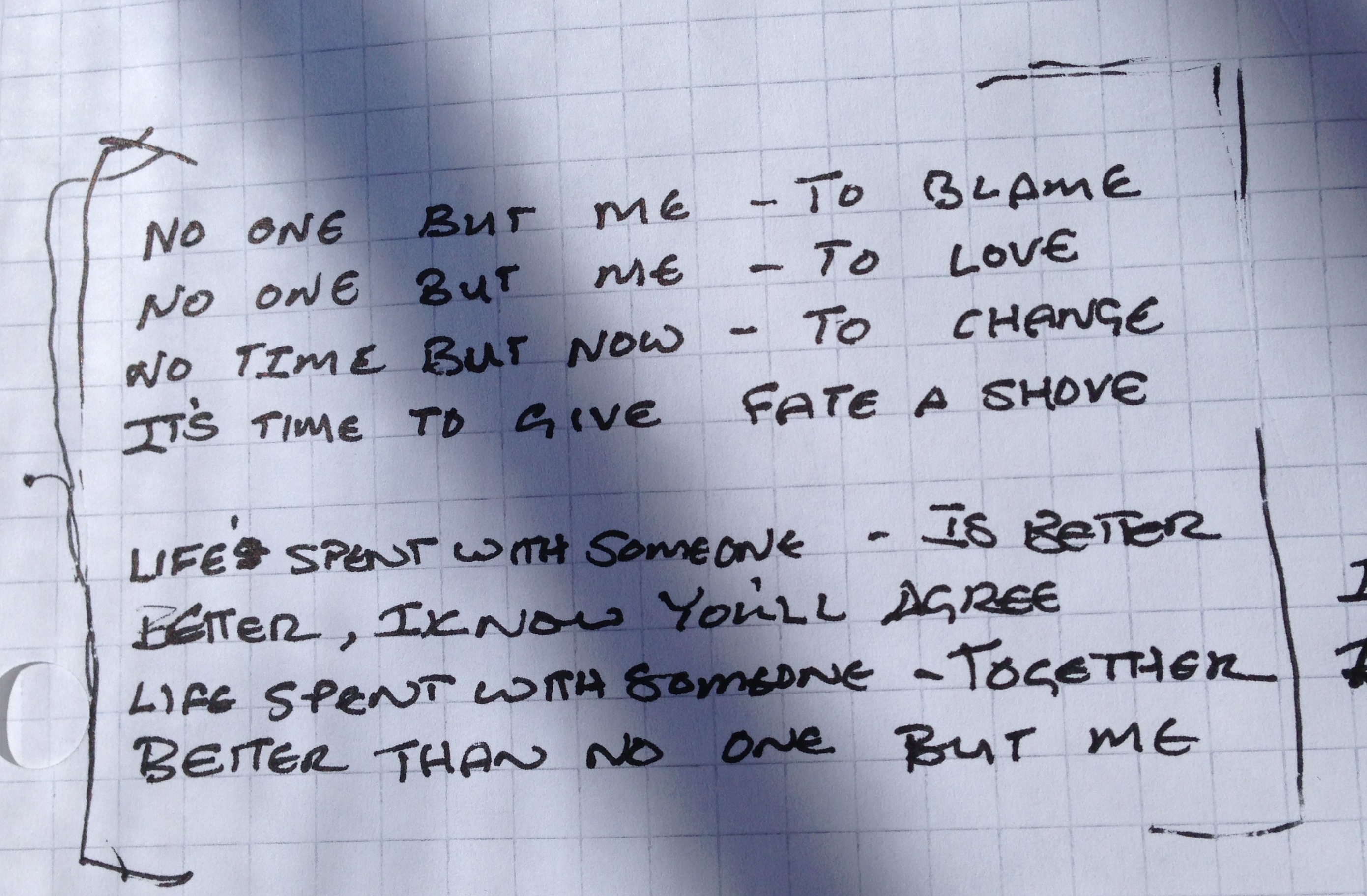For the past few months, I’ve been meeting with my friend, Brandon, to hone my skills at writing for theater. It’s fascinating to learn the business behind the curtain and I’m surprised at how fulfilling and enjoyable it can be to distill stories down to dialogue and extrapolate lyrics from presenting a character with a realization, desire, or emotional transition. A song, as Sondheim says, must be based on one succinct “want” from a character and is different from a poem in that it relies on music to buoy it up. A poem, on the other hand, suffers when sung.
“One difference between poetry and lyrics is that lyrics sort of fade into the background. They fade on the page and live on the stage when set to music.”
At this link you can find a collection of lyrics that I’ve written in the past few months. They’re unfinished and mostly the result of exercises where Brandon asked me to imagine a context, build a “want” from the character’s exact position within that context, and write the lyrics that would satisfy it. They’re free for you to enjoy, repurpose, plaigarize, steal, claim as your own, publish, profit from, and criticize. Keep in mind Sondheim’s distinction, however, on how lyrics themselves, devoid of music, fall flat:
Lyrics, even poetic ones, are not poems. Poems are written to be read, silently or aloud, not sung. Some lyrics, awash with florid imagery, present themselves as poetry, but music only underscores (yes) the self-consciousness of the effort. In theatrical fact, it is usually the plainer and flatter lyric that soars poetically when infused with music.
